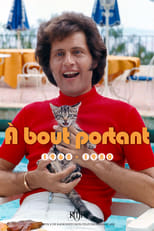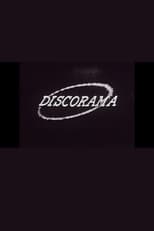

Nicoletta
Born: April 11, 1944
in Vongy [now Thonon-les-Bains], Haute-Savoie, France
in Vongy [now Thonon-les-Bains], Haute-Savoie, France
Nicoletta Grisoni, longer name Nicole Fernande Grisoni-Chappuis, better known by her mononym Nicoletta (born 11 April 1944 in Vongy, now known as Thonon-les-Bains, Haute-Savoie, France) is a French pop singer. Becoming very popular on French radio and television, where she had a number of hits in the 1960s and the 1970s, she was considered as part of what is known as the French yé-yé generation heavily influenced by American music, particularly Rhythm and blues, Rock and roll and Beat music. She is mostly known for her version of "Mamy Blue".
Nicoletta Grisoni was reportedly born of a mentally ill woman who got pregnant as a result of rape. She reportedly chose the song "Mamy Blue" as a tribute to her mother. The original of the song was that of Spanish band Los Pop-Tops and had been subject of many interpretations.
She began her music as a member of her local church choir. She worked for a while in a laundry and at a medical clinic in addition to DJ-ing in the beginning 1960s developing contacts. Encouraged by French songwriter Léo Missir, she was signed to Barclay. Her initial hits included "L'Homme à la moto" (an earlier Edith Piaf song), "Pour oublier qu'on s'est aimé" (from Nino Ferrer, and "Encore un jour sans toi" (co-written by Guy Marchand and Léo Missir).
1967 saw the release of "La Musique" (adaptation from Ann Grégory), and "Il est mort le soleil", written by Pierre Delanoë and music by Hubert Giraud. The song was adapted and interpreted later on by Ray Charles under the title "The Sun Died", also covered by Tom Jones. As activist, she campaigned against play-back music insisting to sing live in her appearances on television. She also supported the French general strike in May 1968, singing in its support.
In 1971, she recorded a French version of "Mamy Blue", a gospel song composed by Hubert Giraud with massive success. It was a hit in many countries outside France as well. In 1973, she founded her own record label, "Rapa Nui", for producing and launching new talents. The same year she released "Fio Maravilla", another big hit for her. The origin was a Brazilian hit from Jorge Ben Jor about soccer player Fio Maravilha, adapted to French by lyricist Boris Bergman. In 1976, her French version of The Battle Hymn of the Republic, titled "Glory Alleluia" with new French lyrics and arrangement by André Pascal, became a Christmas hit.
After a hiatus because of her marriage and bearing a child, she returned to music in 1983 with "Idées noires", as a duo with Bernard Lavilliers. In 1987, she took part in the opera Grandeur et décadence de la ville de Mahagonny (a French version of Rise and Fall of the City of Mahagonny by Kurt Weill and Bertolt Brecht), playing the role of Jenny in the opera. The same year, she also took role of Esméralda in the musical comedy Quasimodo based on Victor Hugo's The Hunchback of Notre-Dame composed by William Sheller.
In the beginning of the 1990s, she suffered great financial problems despite releasing quality interpretations with collaborations from William Sheller, Richard Cocciante, Pierre Delanoë and taking part in galas. ...
Source: Article "Nicoletta (singer)" from Wikipedia in English, licensed under CC-BY-SA 3.0.
Nicoletta Grisoni was reportedly born of a mentally ill woman who got pregnant as a result of rape. She reportedly chose the song "Mamy Blue" as a tribute to her mother. The original of the song was that of Spanish band Los Pop-Tops and had been subject of many interpretations.
She began her music as a member of her local church choir. She worked for a while in a laundry and at a medical clinic in addition to DJ-ing in the beginning 1960s developing contacts. Encouraged by French songwriter Léo Missir, she was signed to Barclay. Her initial hits included "L'Homme à la moto" (an earlier Edith Piaf song), "Pour oublier qu'on s'est aimé" (from Nino Ferrer, and "Encore un jour sans toi" (co-written by Guy Marchand and Léo Missir).
1967 saw the release of "La Musique" (adaptation from Ann Grégory), and "Il est mort le soleil", written by Pierre Delanoë and music by Hubert Giraud. The song was adapted and interpreted later on by Ray Charles under the title "The Sun Died", also covered by Tom Jones. As activist, she campaigned against play-back music insisting to sing live in her appearances on television. She also supported the French general strike in May 1968, singing in its support.
In 1971, she recorded a French version of "Mamy Blue", a gospel song composed by Hubert Giraud with massive success. It was a hit in many countries outside France as well. In 1973, she founded her own record label, "Rapa Nui", for producing and launching new talents. The same year she released "Fio Maravilla", another big hit for her. The origin was a Brazilian hit from Jorge Ben Jor about soccer player Fio Maravilha, adapted to French by lyricist Boris Bergman. In 1976, her French version of The Battle Hymn of the Republic, titled "Glory Alleluia" with new French lyrics and arrangement by André Pascal, became a Christmas hit.
After a hiatus because of her marriage and bearing a child, she returned to music in 1983 with "Idées noires", as a duo with Bernard Lavilliers. In 1987, she took part in the opera Grandeur et décadence de la ville de Mahagonny (a French version of Rise and Fall of the City of Mahagonny by Kurt Weill and Bertolt Brecht), playing the role of Jenny in the opera. The same year, she also took role of Esméralda in the musical comedy Quasimodo based on Victor Hugo's The Hunchback of Notre-Dame composed by William Sheller.
In the beginning of the 1990s, she suffered great financial problems despite releasing quality interpretations with collaborations from William Sheller, Richard Cocciante, Pierre Delanoë and taking part in galas. ...
Source: Article "Nicoletta (singer)" from Wikipedia in English, licensed under CC-BY-SA 3.0.
Movies for Nicoletta...
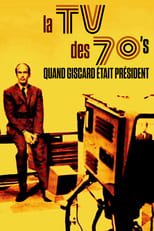
Title: La TV des 70's : Quand Giscard était président
Character: Self (archive footage)
Released: January 7, 2022
Type: Movie
In May 1974, Valéry Giscard d'Estaing became President of the Republic and wanted to bring about a new era of modernity. One of his first decisions was to break up the ORTF with the creation of three new television channels: TF1, Antenne 2 and FR3. Three new public channels but autonomous and competing. It is a race for the audience which is engaged then, and from now on the channels will make the war! This competition will give birth to a real golden age for television programs, with variety shows in the forefront. The stars of the song are going to invade the living rooms of the French for their biggest pleasure. This unedited documentary tells the story of the metamorphosis of this television of the early 1970s, between freedom of tone, scandals, political intrigues and programs that have become mythical.

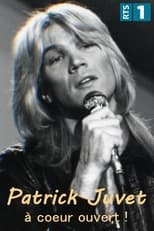
Title: Patrick Juvet : À cœur ouvert
Character: Self
Released: December 30, 2021
Type: Movie

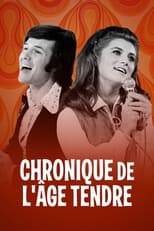
Title: Chroniques de l'âge tendre
Character: Self
Released: October 7, 2021
Type: Movie
This document proposes an immersion in the French society of the 60s and 70s and in the youth of the time with the testimonies and confidences of Sheila, Salvatore Adamo, Antoine, Hervé Vilard, Michel Fugain, Nicoletta, Michel Jonasz, Laurent Voulzy and the photographer Tony Frank. They tell with hindsight and humor, their beginnings in the 60s and 70s, and before becoming idols. It is also an opportunity to leaf through the pages of the successful magazines of the time "Salut les copains" and "Mademoiselle Age tendre". Created by Daniel Filipacchi, they highlighted the idols of the moment, music, fashion, sexuality, consumer objects and questions about society.


Title: Aznavour by Charles
Character: Self - Singer (archive footage)
Released: October 2, 2019
Type: Movie
In 1948, French singer Charles Aznavour (1924-2018) receives a Paillard Bolex, his first camera. Until 1982, he will shoot hours of footage, his filmed diary. Wherever he goes, he carries his camera with him. He films his life and lives as he films: places, moments, friends, loves, misfortunes.

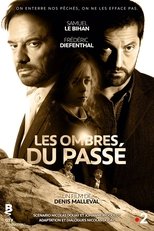
Title: Shadows of the Past
Character: Jeanne Leblanc
Released: November 7, 2018
Type: Movie
Vincent witnesses a deadly accident which rekindles a terrible event from his past.


Title: Amanda
Character: Self
Released: September 5, 2016
Type: TV
The program combines comedy, celebrity, musical guests, and human-interest stories.


Title: N'oubliez pas les paroles - Primes événementiels
Character: Self
Released: January 1, 2008
Type: TV


Title: Star Academy
Character: Self
Released: October 20, 2001
Type: TV
Star Academy is a French reality television show produced by the Dutch company Endemol. It consists of a contest of young singers. It spawned an equally successful show in Quebec called Star Académie. It is broadcast on TF1. At the end of each season, selected contestants would go on tour around France, Morocco, Switzerland, Belgium, Tunisia, and other French-speaking countries.



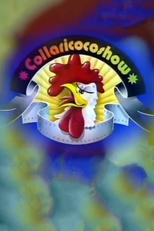



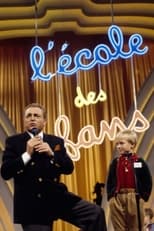
Title: Fan School
Character: Self
Released: January 30, 1977
Type: TV
Host Jacques Martin invites different talented children from various backgrounds to showcase their beautiful voices. The participants entertain and wow the audience with their lovely performances.

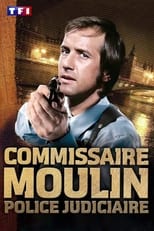
Title: Police Commissioner Moulin
Character: La mère de Valérie
Released: August 4, 1976
Type: TV
The series follows the adventures of lighthearted Jean-Paul Moulin, a police Commissaire, and his team as they solve crimes.

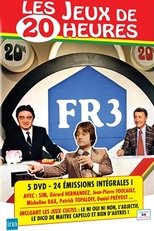


Title: Numéro un
Character: Self
Released: April 5, 1975
Type: TV
A French variety show.




Title: Les Rendez-vous du dimanche
Character: Self
Released: January 12, 1975
Type: TV
A talk show presented by Michel Drucker


Title: Midi Première
Character: Self
Released: January 6, 1975
Type: TV
Midi Première is a French variety show presented by Danièle Gilbert, directed by Jacques Pierre and broadcast from January 6, 1975 until January 1, 1982 on TF1. The program was generally broadcast between 12:15 p.m. and 12:55 p.m., then giving way to the 1:00 p.m. TV news. However, the broadcast schedule could change, depending on the guests, and the setting where the recording of the program was shot. Certain performances by artists who have become cult like the one where Ringo jostles with a demonstrator in interpretation (1977), that of Dalida with the title There is always a song with the soundtrack that does not start, twice, at the right speed (1978), Claude François and his Clodettes, who, in the provinces, are unable to join "the set" in order to interpret his song, the latter being taken by the crowd of delirious fans (summer 1977) . The group Supertramp performed there with the title "Dreamer" on March 8, 1975.







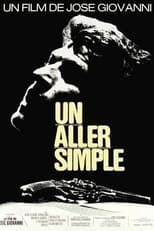
Title: One Way Ticket
Character: Rose
Released: May 26, 1971
Type: Movie
After a bank robbery gone wrong, a crook goes on the run across Belgium to escape the police, clear himself of a crime that he did not commit, and protect his girlfriend from a shady lawyer.



